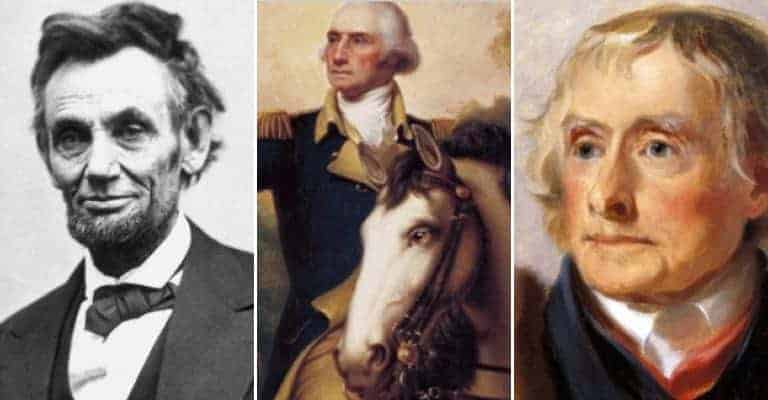In July 2012, the United States will have been independent for 246 years. In that time, there have been 46 Presidents. Throughout that history, there have been a lot of ups and downs. The path between the first elected President of our nation and today is awash with both good times and bad. With three different branches of government, it seems folly to give all the credit for those ups and downs to the executive of the nation. However, that seems to be what we all tend to do. Let’s examine the six most influential presidents in the history of the United States.

George Washington
It makes sense that George Washington would make our list. After all, he was the first of many, and that alone would make him very influential over the post of President of the United States. For one thing, he stepped down when his term ended, something that made almost all the difference. At that time, most nations were ruled by Kings or Queens, and these were lifetime, inherited posts. If Washington had wanted to, it would have caused some problems if he hadn’t stepped away peacefully when John Adams was elected to become the second President. Most often in history before that time, any transfers of power between leaders had been very bloody.
There is a fresco in the Capitol Building called the “Apotheosis of Washington” which depicts George Washington becoming a God. For a nation that, at the time, was running away from a religious oligarchy, it is interesting that Washington is thought of in such a light. As a nation, we have put George Washington on a pedestal as the example of what a president should be. Most non-history buffs would likely be unable to name a single flaw if you were to ask them about George Washington.
It is quite hard to explain exactly how popular Washington was after the Revolutionary War ended. He was seen with awe amongst the colonies as they came together to ratify the Constitution. He was seen as a leader that all could look up to and he should rightfully lead the nation as the first president. This was exhibited by the results of the first election where Washington was voted in by all thirteen colonies.
There is a myth perpetuated by some historians that George Washington was offered the monarchy of the United States. This, as far as records show, is not true. However, it does go to show exactly how exalted Washington was, and still is, in the United States.

